|
What a weekend April 27th/28th 2019 was for pop culture, with spoiled audiences treated to perhaps the biggest moment in not one, but two of the biggest franchises ever. First came Avengers Endgame, the twenty-second movie in the Marvel Cinematic Universe and the culmination of the now-named Infinity Saga. Barely was there a chance to pick jaws off the floor before they were plummeting back down again with the biggest battle ever committed to film, The Battle for Winterfell in Game of Thrones. Both came from niche beginnings, one from comic books and the other from fantasy novels and I doubt any 90s high school movie bully would have foreseen how they’ve stormed the mainstream by raking in viewers and more cash than the Lannisters could dream of while setting records that look almost as unbreakable as Cap’s shield. So after twenty-one films and 45 hours and sixty-nine episodes and 42 hours in building to their respective climaxes, how did they deliver? (Yes I know Game of Thrones still has three episodes to go.) Contains spoilers for the entire MCU and Game of Thrones up to Season 8 Episode 3. Avengers Endgame made $1.2 billion in its opening weekend. $1.2 billion. That's almost double the record set by its predecessor Avengers Infinity War a year earlier, and enough to already make it the 17th biggest movie of all time, in one weekend. Everything Marvel Studios have achieved to this point is extraordinary. Twenty-two interconnected movies building towards one goal, while establishing B and increasingly C tier characters as the biggest heroes in the world is remarkable, that the films are generally getting better and better is unbelievable. Endgame itself took some interesting, and for my money, smart steps. For a start it didn’t undo what had come before, so that our heroes’ failure in Infinity War will continue to have repercussions in the MCU going forward, and that the impact still has narrative weight. Its three acts were all very distinct, the first an intriguing look at grief and how the world is trying to move on from half of all living things vanishing (including a throwaway line of how there is less pollution in the world even opens up the possibility that perhaps Thanos had a point), then a second act of heisty jaunts through the MCU’s hard earned mythology thanks to time travel to pull the infinity stones together, culminating in an epic battle with 30 named heroes banding to save the universe. Perhaps astonishingly this movie, despite having to serve as the climax of everything that came before, is actually able to stand on its own two feet. Really it is only a direct sequel to Infinity War, but its premise - ‘bad thing happened, let’s fix it’ - is still accessible, and its structure is clear enough that you can get the jist of it. How do I know? Because I saw it with a friend who, apart from a 14 minute YouTube primer, had seen none of the Marvel movies, and he still loved it. Do I recommend doing this? Of course not! Part of the joy of the MCU is the connective tissue between them, characters you know and like from one series appearing in another and payoffs that come sometimes years in the making. If they’re the only ones who do it (well, do it well) then make the most of what makes them so unique. While you can conceivably watch the movie with no prior knowledge, one of the joys came from revisiting the old set pieces from through the MCU’s history, from the highlight of the Battle of New York in the first Avengers to the lowlight of Thor The Dark World. It didn’t feel like retreading old ground however, as the action was moved to the fringes of those events, adding new spins, such as the sorcerers defending New York before Dr Strange and how Asgardians can’t tell the difference between racoons and rabbits. Plus the reveal of how the Guardians of the Galaxy opening (an all time highlight) looked without the soundtrack was one of the best jokes of the already pretty funny film. Some are also great for building character. Tony Stark gets to have the open, honest conversation with his father he never got in life. The heart of the MCU is its characters, and the job they have done in building them not through regular TV appearances like on Game of Thrones is fantastic. For example Hawkeye, who often gets a bad rap, has only appeared as a B tier character in four movies (cameo excluded), last seen three years ago, yet he is fully developed, his deep, layered relationship with Black Widow one of the linchpins of the series. Black Widow, often overlooked, carries much of the emotional weight early in the movie, and her death is both a great action sequence while providing gravitas that helps ground what is objectively a very silly film. Obviously not every character was going to get a significant time to shine (though most got a moment in the final fight), so the core cast is largely the original Avengers line up, who we have known the longest. This put me off the end of Infinity War a bit, since the supposedly arbitrary 50/50 split seemed to be mostly driven by the length of its stars contracts, but it meant in this final movie we were able to spend time with characters we probably won’t see much of going forward, and the resolution of Endgame meant it wasn’t as cynical as swapping the old guard with the new. The whole saga finishes, fittingly, with the character who started it, Iron Man aka Tony Stark, giving his life to save the universe. In many ways Tony has been the heart of the MCU, moving from hedonistic weapons dealer, to paranoid self appointed protector, to semi retired family man. The addition of his daughter was an excellent wrinkle to the plot, giving him genuine hesitation to trying to undo past events and ultimately made his sacrifice even more poignant. Captain America too, written off by so many as dead in the year since Infinity War, got a wholly unexpected, but perfect ending. Using timey wimey machinations, essential to the plot but not so important as to lose sleep over, Cap finally gets the life and the dance he missed out on with the end of The First Avenger, all the way back in 2011. Now the mantel, and indeed the whole Marvel roster, has been passed on to the next generation, but fortunately we got to enjoy some resolution to all our investments before the MCU has to start reinventing itself with Phase 4. What is much closer to a total resolution though is Game of Thrones. Both are centred round a huge and strong cast of characters with a pedigree of great action, but with the nature of the show’s more serious tone - forgetting the dragons and ice zombies - I was expecting a much different kind of fulfilment. It still has three weeks to run, but its biggest episode and what surprisingly turned out to be the culmination of 8 years worth of foreshadowing and place setting happened this week instead in The Long Night. 17.8 million people watched both live on HBO and across it’s streaming apps, a new record beating the season premiere by 0.4 million, and generated 7.8 million tweets, the biggest ever for a scripted show. The figure for those who watched in the UK hasn’t been announced yet, both for its Monday 9pm slot, Monday 2am slot, or those like me who got up slightly early before work to watch the 2am recording. The opening was fantastic, setting a mood of tension and dread. This episode is at points a straight up horror, and along with Hardhome is probably one of the best zombie dramas ever in making the undead terrifying. The Dothraki charge into the unseen enemy, only for their flaming swords to be snuffed out, leaving blackness and the grim realisation of the seemingly insurmountable odds the living face (even if many had issues with the general darkness overall). It then rips into full on action, with the hordes of the undead piling into and on top of the defenders of Winterfell. It famously took 55 consecutive night shoots to film this battle, and credit to everyone involved as technically it is spectacular. The action is frenetic and unrelenting, and though it mostly chooses to stay close to individual combatants, it’s a scale never before seen on TV. Most of the best moments though were away from the onslaught. The scene of Arya in the library is outstanding, as even this seasoned killer frightenedly tries to stealth her way past wandering wights, and in the silence broken only by her own breathing you are right there with her. The other (for me anyway) was the dragon fight in the sky, which was brutal as they ripped each other apart, followed by Jon’s confrontation with the Night King, where he fails to reach him and appears as the point in which all is lost. And of course, in the moment, when Arya surprises and kills the Night King and his entire army (in an old move, dated even when it appeared in the first Avengers) was totally shocking, and left us in a whirlwind of emotion and confusion. That said, a criticism launched at Game of Thrones is it is no longer the show it was when it started (which oddly started when it outpaced the source novels…) and this battle reinforced that. It has been so long since we got a gut punching death like the Red Wedding or Oberyn Martell’s skull getting squished like Play doh that gave the show its famous reputation as the one where anyone could die. In this battle, hyped as the biggest ever, we got only six named deaths; four as the natural culmination of their character arcs, one inconsequential in the grand sceheme and one as well wearing a t-shirt reading, “I am fodder.” Besides the shock of Arya killing the Night King, probably the biggest surprise was how few there were. Brienne was overwhelmed at least three times, Tormund had a wonderful scene he could have bowed out with last week, Pod and Gendry seemed to do the sum total of sweet FA and how Grey Worm didn’t die must go down as one of the show’s biggest mysteries. Even one of the favourite memes leading up to the battle, that the crypts full of dead people was a bad place to be against someone who can raise the dead, turned out to be underwhelming. There’s a wonderful character moment between Sansa and Tyrion, then they draw some knives (a suicide pact you think??) before they go and hide with the other named characters. They aren’t even attacked. This isn’t just me baying for blood (not just), but it totally lessened the threat they had built towards and felt very anti-climatic. It’s all good and well killing scores of nameless extras, but an audience won’t invest or feel the stakes if no one they care about is in ‘real’ danger, and with keeping so many characters on the board it feels as if the showrunners were more interested in the episodes to come. Even the trailer for next week carries an “Well that’s that done,” vibe, making the White Walkers, who had been positioned as the show’s ultimate challenge from the very first scene, end up as an easily dispatched distraction.
Yes it's true Marvel killed off fewer of its heroes, and none in the final battle, Tony aside, but that's consistent with the tone and style of the MCU, with many characters having ‘died’ only to return quite alive, all the way back to Loki at the end of Thor. Game of Thrones feels like it is betraying itself. Valar morghulis? It appears not if you're a fan favourite or important to the plot. One thing that could be interesting about dispensing with the Night King so early is the show's focus will be back on its human evil incarnate, Cersei. Game of Thrones was always at its strongest when character interplay and political intrigue took the forefront, but how can we reinvest ourselves in who sits on a spiky chair now they've beaten literal death? Fans shouldn’t always be given a satisfying ending. A complaint of Breaking Bad’s finale was that it gave audiences everything they wanted, closure, comeuppance, the works. While great to watch at the time it hasn’t sunk into the public conscious in the way The Soprano’s did, people so dismayed they thought their TV had broken (I still remember my dad screaming) yet is considered one of the best finales ever. But it never got rid of its biggest enemy three episodes before the end. Avengers probably sits in the middle. Of course they were always going to defeat Thanos and bring the 50% that had been dusted back, but it came at a cost that made it feel earned, and in a way that still provided twists both sad and satisfying. Game of Thrones (and yes, there are three episodes to go so there will be more twists) has arguably become so eager to surprise that it now threatens to undermine it all. You can still end up at the point the audience expects and be satisfying, it all comes in how you get there. I have everything crossed that they’ll still be able to stick the landing.
1 Comment
Last month one of Scotland’s biggest exports of recent years, Still Game, aired its final episode. It wouldn’t be much of a stretch to call it a cultural phenomenon, you’d be hard pressed to find a Scot who doesn’t know Jack, Victor and the gang, and it was a smart move broadcasting it on the new BBC Scotland channel, with the show giving the nascent channel its biggest ratings by far. However, anecdotally, that may have been aided by the fact that this was the last season. Most of the people I speak to now only watch out of loyalty, with many (myself included) of the opinion the show should not have been revived in 2016. Of course after the box office takings of the stage show at the Hydro it was always going to be attractive bringing back the most successful Scottish comedy of its generation, but unfortunately it never hit the heights of its original six season run. All your favourites are back and just as you remember them, except as the actors joke needing slightly less makeup. The vast majority after nine seasons are well formed, rounded characters, Isa particularly is an absolutely spot on observation of older, gossipy women - she is basically my gran. But with that they increasingly seemed to lean too much into the characterisations. Jokes often revolved around characters’ one or two main traits (e.g. Tam is tight), and more so towards the end, conflict and therefore drama and therefore laughs were sacrificed in place of characters being nice and decent to each other, almost screaming at us that they were all loveable, if a bit cantankerous. It is the problem with Scottish comedy, because it is so quick witted and spontaneous it’s hard to capture on film without feeling stilted. This isn’t helped when the Glaswegian way of speaking is so fast as to be almost impenetrable to those not familiar, which limits its market, but when slowed down can easily come across as fake. A way to overcome this is to use one of the Glaswegian sense of humour’s greatest strengths, its storytelling. A well plotted premise, and setup, filled with charm and truth will always land a greater laugh, when just giving someone a sweary insult won’t cut it.
That was one of the problems I had with the later seasons, its setups could sometimes feel contrived without payoff or consequence. There was an episode last season when Isa gets in a fight with a woman who doesn’t want her looking at a cake, which results in the cake’s destruction. Instead of being angry or even having a reason to not want Isa seeing the cake, the woman shrugs it off as she has another. In a two episode arc this season, a character fakes their death in one of the more bizarre premises, with them leading everyone on a mystery in the second episode, just for everything to return to normal after. Why then did they even need to disappear if it made no difference, other than to draw out a plot? I’m usually skeptical when a show returns, very much of the thinking that it’s hard to recapture what made a show great, which is often a result of its place and time. And indeed with its audience now all a decade older, of course tastes and circumstances will have changed. However one of my mates, who is a teacher, tells me that kids in his school run around howling like the ‘Lone Wolf’ character who keeps robbing Navid’s, hated by my generation but clearly idolised by the young ones (that was painful to write). This raises the idea that maybe we weren’t the target target audience any more. This would make sense, given that the original run of Still Game - and Chewin the Fat before it - was landmark TV when I was in school, edgy without being hardcore (“They said shite!”) and birthing so many childhood trends (“Good guy, wank.” - “Oooooh! Fancy!” - “Milk, lemonade, chocolate!”). Perhaps they were still aiming for the school age demographic, of which we were no longer in? Though the show's characters hadn't gotten older, we had. Still Game is finished, again, and I’m glad for it. It was an icon for me and most my age growing up and these new seasons, though not enhancing the memories, certainly didn’t hurt them, and had the added bonus of introducing the show to a whole new generation, and indeed the rest of the UK and has now even made its way to Netflix. But it’s time for someone else to take over the reigns as Scotland’s biggest comedy. I hear Scot Squad is quite good. |
Archives
June 2020
Categories |
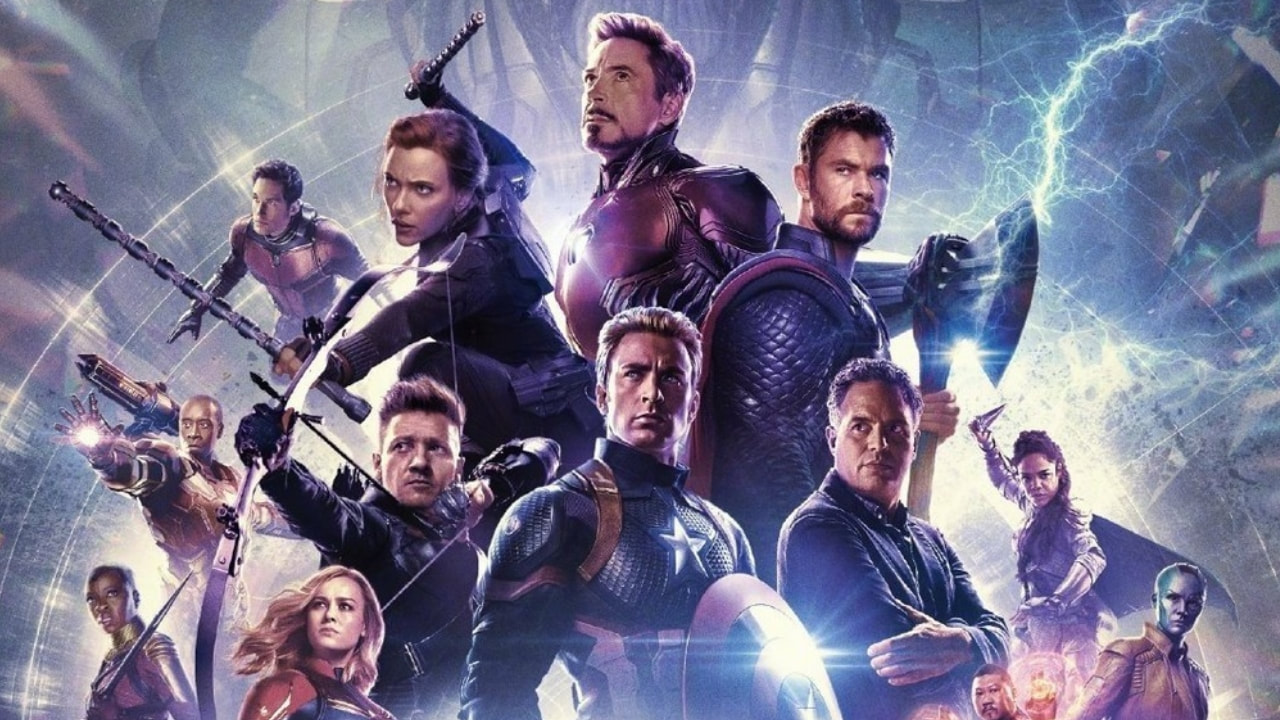
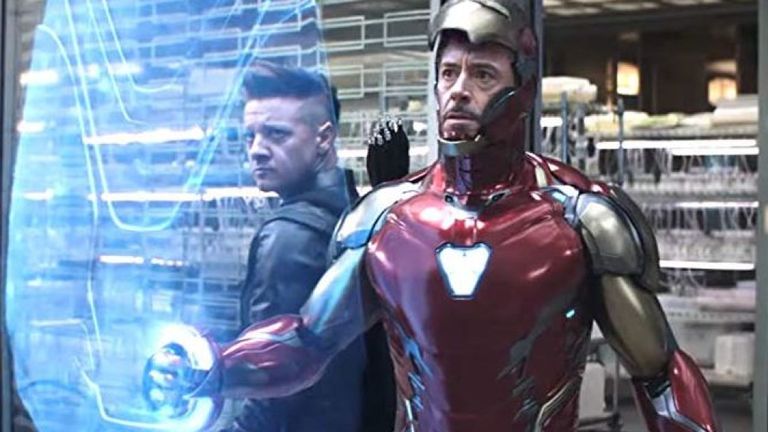
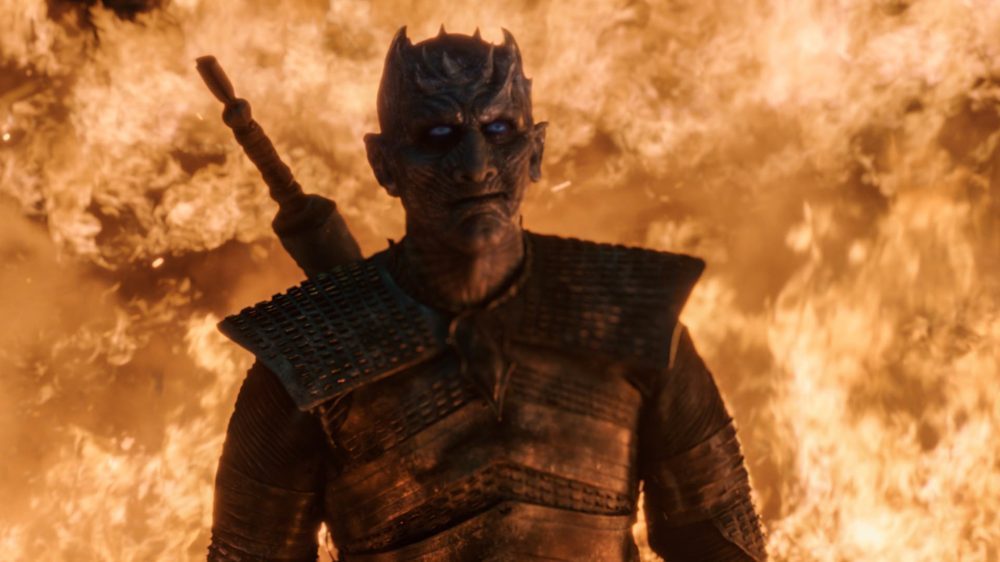
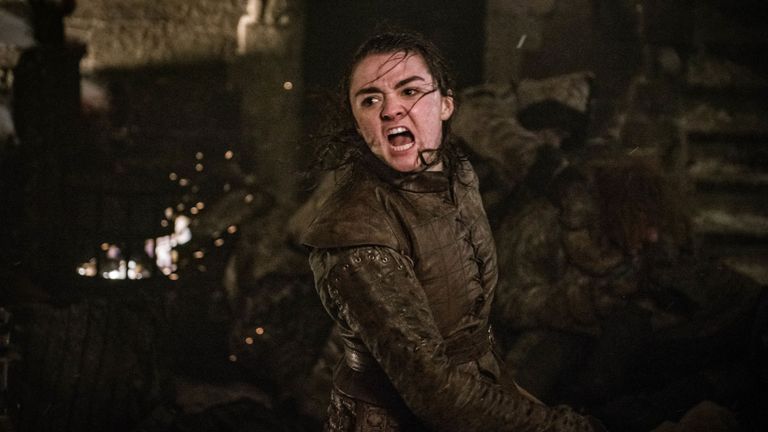
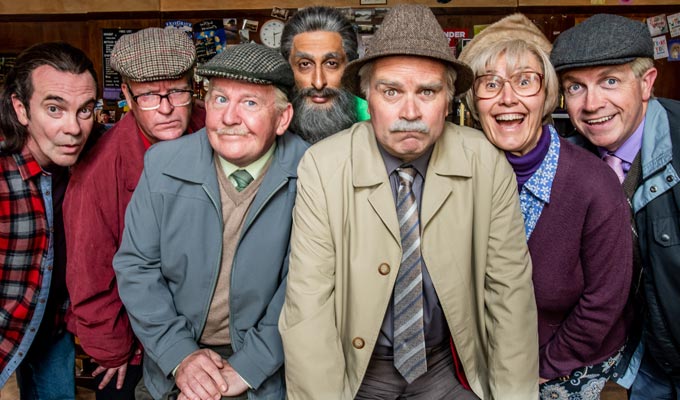
 RSS Feed
RSS Feed
